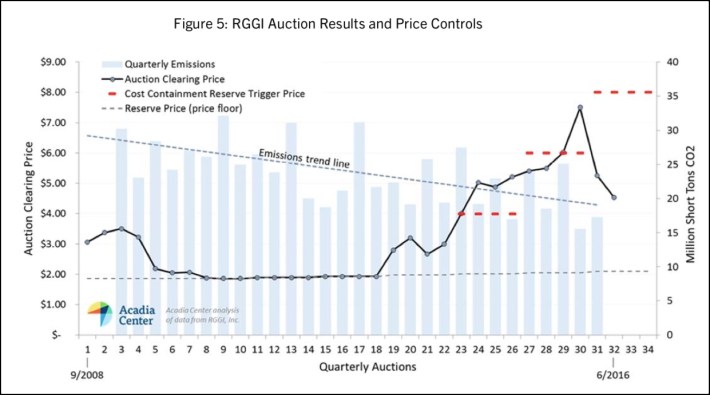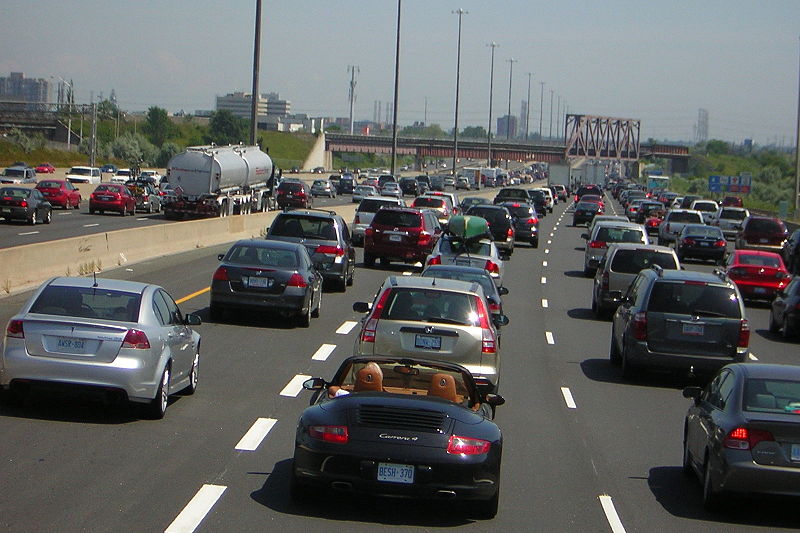The northeast of the United States is starting to get serious about addressing the largest source of greenhouse gas emissions: the transportation sector.
Nine states — Connecticut, Delaware, Maryland, Massachusetts, New Jersey, Pennsylvania, Rhode Island, Vermont, Virginia — plus Washington, D.C. have committed to creating "caps" on emissions and participating in a trading system that will help lower tailpipe emissions. Three other states, New York, Maine and New Hampshire, are participating in a planning process around developing "caps," under the heading of the Transportation & Climate Initiative of the Northeast and Mid-Atlantic States.
A new coalition of environmental, business and community groups that launched this week to help support the plan. The plan will be modeled on an earlier effort, the Regional Greenhouse Gas Initiative, that created a cap-and-trade system for power plant emissions in those states. Since that program's launch, emissions rates in the participating states fell 16 percent more than the national average. Electricity prices also went down for consumers, declining 3.5 percent in the first seven years compared to 7-percent price growth nationwide, according to an analysis [PDF] by the Acadia Center, a clean energy think tank.
But transportation progress has, until now, been lagging. Currently about 42 percent of the northeast and Mid-Atlantic region's total carbon emissions come from transportation. Participating states and regions would assess their total emissions from transportation and then set a goal to reduce them over time.
The plans are not yet fully formed. The way "Cap and Invest" works, pollution emitters — in this case, potentially fuel suppliers — would monitor their emissions. When they exceed their allowances, they are able to buy credits that can be traded on an open market across the states. The most recent auction for power plants in the gas initiative program generated $67 million, for example.

The revenues from the sales could then be invested in initiatives aimed at making transportation more sustainable.
"Charging stations for EVs, or creating a dedicated bike lane, what we’re really pushing is to make sure that it’s going to things that are going to mean the most reduction in pollution," Morgan Folger, of Environment America, which is part of the Our Transportation Future consortium leading the effort, told Streetsblog.
A large gathering was held in Boston this week with key stakeholders, facilitated by the Georgetown Climate Center. Our Transportation Future and the affiliated environment business and community groups, hope to provide the support needed to realize the plan. The nine participating states have agreed to complete their plans by the end of the year. Then they would need to be adopted by each state, allowing the credits to be traded across the entire regional market.
Massachusetts's Republican Governor Charlie Baker recently expressed support for the concept. Commonwealth Magazine estimated it would generate between $500 million on the high end and $150 million on the low end in new revenue for the state, and could be much-needed source of revenue for Boston's transit agency, MBTA. The low-end estimate would cost the average driver about $2 per month, Commonwealth's Andy Metzger reported.






